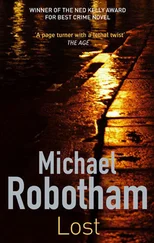“Wait! Don’t leave. Can we talk?”
She doesn’t answer. Perhaps she doesn’t understand.
“Do you speak English?” I point to myself. “My name is Alisha.”
She steps around me.
“Wait, please.”
She steps around me again. I have to dodge people as I try to walk backward and talk to her at the same time. I hold my hands together as if praying. “I’m looking for Samira.”
She doesn’t stop. I can’t make her talk to me.
Suddenly, she enters a building, pushing through a heavy door. I don’t see her use a key or press a buzzer. Inside smells of soup and electric warmth. A second door reveals a large stark room full of tables and scraping chairs. People are sitting and eating. A nun in a black tunic fills bowls of soup from a trolley. A bikie type with a long beard hands out plates and spoons. Someone else distributes bread rolls.
An old man at the nearest table leans low over his food, dipping chunks of bread into the steaming mixture. He crooks his right arm around the bowl as though protecting it. Beside him a tall figure in a woolen cap is trying to sleep with his head on the table. There must be thirty people in the dining room, most with ragtag clothes, body tics and empty stomachs.
“Wou je iets om te eten?”
I turn to the voice.
In English this time: “Would you like something to eat?”
The question belongs to an elderly nun with a narrow face and playful eyes. Her black tunic is trimmed with green and her white hair sweeps back from her brow until it disappears beneath a wimple.
“No, thank you.”
“There is plenty. It is good soup. I made it myself.”
A work apron, the width of her shoulders, reaches down to her ankles. She is collecting plates from the tables, stacking them along her arm. Meanwhile, the girl has lined up metal tins in front of the soup pot.
“What is this place?”
“We are Augustinians. I am Sister Vogel.”
She must be in her eighties. The other nuns are of similar vintage although not quite so shrunken. She is tiny, scarcely five feet tall, with a voice like gravel spinning in a drum.
“Are you sure you won’t eat?”
“No. Thank you.” I don’t take my eyes off the girl.
The nun steps in front of me. “What do you want with her?”
“Just to talk.”
“That’s not possible.”
“Why?”
“She will not hear you.”
“No, you don’t understand. If I can just speak—”
“She cannot hear you.” Her voice softens. “She is one of God’s special children.”
I finally understand. It’s not about language or desire. The girl is deaf.
The soup tins have been filled. The girl screws a lid on each tin and places them in a shoulder bag. She raises the strap over her head, adjusting it across her chest. She unfolds a paper napkin and wraps two pieces of bread. A third piece she takes with her, nibbling at the edges.
“Do you know her name?” I ask.
“No. She comes three times a week and collects food.”
“Where does she live?”
Sister Vogel isn’t going to volunteer the information. There is only one voice she obeys—a higher authority.
“She’s done nothing wrong,” I reassure her.
“Why do you wish to speak with her?”
“I’m looking for someone. It’s very important.”
Sister Vogel puts down the soup dishes and wipes her hands on her apron. Rather than walking across the room she appears to float a fraction above the wooden floorboards in her long tunic. I feel leaden-footed alongside her.
She steps in front of the girl and taps the palm of her hand before making shapes with her fingers.
“You can sign!” I say.
“I know some of the letters. What do you wish to ask?”
“Her name.”
They sign to each other.
“Zala.”
“Where is she from?”
“Afghanistan.”
I take the photograph from my pocket. Sister Vogel takes it from me. The reaction is immediate. Zala shakes her head adamantly. Fearfully. She won’t look at the image again.
Sister Vogel tries to calm her down. Her voice is soft. Her hands softer. Zala continues to shake her head, without ever lifting her gaze from the floor.
“Ask her if she knows Samira.”
Sister Vogel tries to sign but Zala is backing away.
“I need to know where Samira is.”
The nun shakes her head, scolding me. “We don’t frighten people away from here.”
Zala is already at the door. She can’t run with the soup weighing her down. As I move to follow her, Sister Vogel grabs my arm. “Please, leave her alone.”
I look at her imploringly. “I can’t.”
Zala is on the street. She looks back over her shoulder. Her cheeks are shining under the streetlamps. She’s crying. Hair has escaped from beneath her hijab. She cannot spare a hand to brush it away from her face.
The DI isn’t answering his mobile. His battery must be dead. Dropping back, I stay behind Zala as she leads me away from the convent. The streets and canals are no longer familiar. They are lined with aging, psoriatic houses, subdivided into bedsits, flats and maisonettes. Doorbell pushers form neat lines.
We pass a small row of shops that are shuttered and locked. At the next corner Zala crosses the road and enters a gate. It belongs to a large, rundown apartment block at the heart of a T junction. The shrubs outside are like puffs of green against the darkness of the bricks. There are bars on the downstairs windows and shutters on the upper floors. Lights burn behind them.
I walk past the gate and check there are no other entrances. I wish Ruiz were here. What would he do? Knock on the door? Introduce himself? No, he’d wait and watch. He’d see who was coming and going. Study the rhythm of the place.
I look at my watch. It has just gone eight. Where is he? With luck, he’ll get my text message with the address.
The wind has picked up. Leaves dance with scraps of paper at my feet. Hidden in a doorway, I’m protected by the shadows.
I don’t have the patience for stakeouts. Ruiz is good at them. He can block everything out and stay focused, without ever daydreaming or getting distracted. When I stare at the same scene for too long it becomes burned into my subconscious, playing over and over on a loop until I don’t register the changes. That’s why police surveillance teams are rotated every few hours. Fresh eyes.
A car pulls up. Double-parks. A man enters the building. Five minutes later he emerges with three women. Neatly groomed. Dressed to kill. Ruiz would say it smells like sex.
Two different men stop outside to smoke. They sit on the steps with their legs splayed, comfortable. A young boy creeps up behind one of them and covers his eyes playfully. Father and son wrestle happily until the youngster is sent back inside. They look like immigrants. It’s the sort of place Samira would go, seeking safety in numbers.
I can’t stay here all night. And I can’t afford to leave and risk losing my link to her. It’s almost nine. Where the hell is Ruiz?
The men on the steps look up as I approach.
“Samira Khan?”
One of them tosses his head, indicating upstairs. I step around them. The door is open. The foyer smells of cooking spices and a thousand extinguished cigarettes.
Three children are playing at the base of the stairs. One of them grabs hold of my leg and tries to hide behind me before dashing off again. I climb to the first landing. Empty gas bottles have collected against the walls beside bags of rubbish. A baby cries. Children argue. Canned laughter escapes through thin walls.
Two teenage girls are sitting outside a flat, heads together, swapping secrets.
“I’m looking for Samira.”
One of them points upstairs.
Читать дальше












